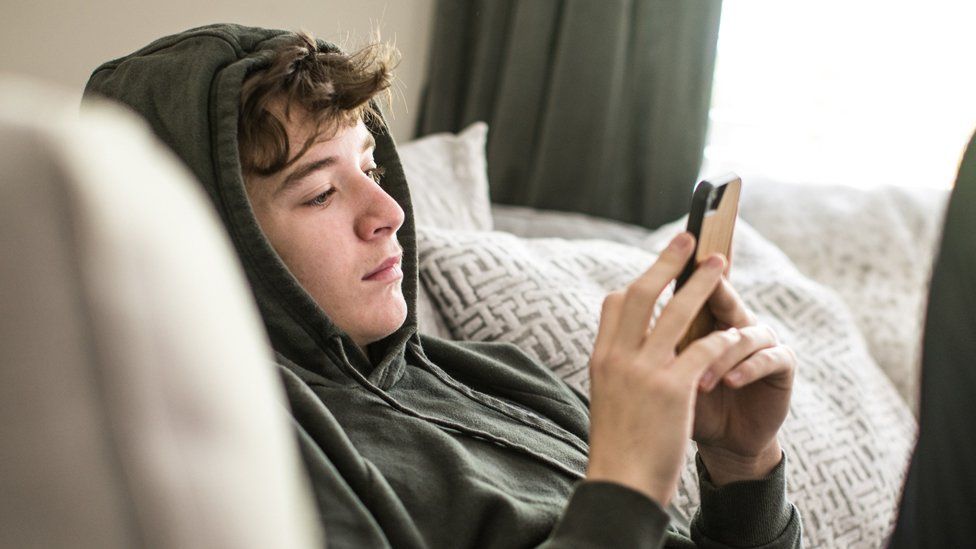ARTICLE AD BOX
 Image source, Getty Images
Image source, Getty Images
By Kristian Johnson
BBC News
Social media scammers are charging pupils hundreds of pounds for what they claim are leaked GCSE and A-level exam papers, but are likely to be fakes.
A GCSE pupil, who was quoted £500 for a paper by someone on Instagram, said the idea papers might be for sale was "the most talked about hype" of exam season.
It is extremely rare for genuine papers to be leaked, exam boards said.
But they added the scams were becoming more common, with fraudsters charging between £7.50 and £4,000 per paper.
Instagram, TikTok and Snapchat said fraudulent activity was against their rules and anyone who spotted such accounts should report them.
A spokesperson for the Joint Council for Qualifications (JCQ) said: "Attempting to obtain any confidential assessment material, whether it turns out to be real or fake, is malpractice."
Punishments for those who cheat can vary from disqualification from a single exam to being banned from sitting exams altogether.
'Ridiculous prices'
Jade, not her real name, spoke to BBC News on condition of anonymity.
The 15-year-old first saw accounts claiming to sell GCSE exam papers on TikTok.
In a conversation with one of the accounts, she was then told to contact the seller on Instagram.
Image source, Handout
Image caption,One GCSE student was quoted £500 by a scammer claiming to sell GCSE exams
"I was taken aback because it was ridiculous prices," Jade said.
"Anywhere north of £500 for a paper was the typical offer from multiple accounts for one exam paper."
Jade did not buy the exam paper but said she knows students who have paid up to £900.
Another student told BBC News they had paid a social media account £60 last year for a GCSE maths exam.
But they were left feeling "hurt and annoyed" when the account blocked them and failed to send anything.
Jade said some students were panicking this year because there is less support for pupils sitting exams in England in 2023 than there has been for other year groups since the pandemic.
"The people who buy from these accounts are your most desperate students," she said.
"These accounts are actually very clever and sneaky in what they do - preying on this vulnerability.
"You wouldn't meet a single student across this whole year that has not heard of these accounts. They are everywhere."
BBC News posed as a GCSE student and contacted two separate Instagram accounts claiming to sell exam papers.
Image source, BBC/Instagram
Image caption,An Instagram account quoted BBC News £150 for one exam paper
One quoted a price of £120 for an AQA geography paper and £150 for an English language paper. Another account also quoted £150 for a single exam paper.
Both accounts asked to be paid through the payment app, Cash App.
But our £150 transaction was blocked by Cash App on several occasions - so the scammer asked to be paid with a gift card for a High Street retailer.
After paying the agreed fee, our messages were ignored and no paper was sent to us. The scammer's social media account was then deleted before BBC News had the chance to report it to Instagram.
A spokesperson for Meta, the company that owns Instagram, said the sale of future exam papers or answer sheets was not allowed and any such content would be removed from the platform.
Bill Hewison, a case analyst at exam board, AQA, said many scammers use doctored images of previous exams, changing the date and text on the front cover to try to dupe students.
"A few weeks ago, we saw an account claiming to sell one of our exams for £7.50," he said.
"Right at the other end of the scale, you've got thousands of pounds [being quoted] - two, three, four thousand pounds."
BBC News was granted exclusive access to see how AQA's malpractice teams try to shut down the fraudulent accounts.
They do not know who is behind the accounts, but they have scoured social media for anyone claiming to sell papers to students, before and during exam season.
Exam boards have no power to shut the accounts down so instead, they report them to social media platforms - often citing copyright as a way to escalate the complaint.
A spokesperson for TikTok said any accounts "promoting fraud or scams" are removed.
Snapchat said they take fraudulent accounts off the platform and urged users to report suspicious activity.
'Digital whack-a-mole'
But legitimate leaks are rare - and fraudulent accounts on social media are a growing problem.
"If we do a search on Tuesday, we will see five accounts. If we do the same search on Wednesday, we will see 10 accounts," Mr Hewison said.
"If you get one, they'll just create another account."
JCQ chief executive Margaret Farragher said it was like "digital whack-a-mole".
"As soon as they try to close down one of these fake accounts, another one opens up," she added.
Ofqual chief regulator Jo Saxton told students not to rely on "fraudsters on the internet" ahead of their exams.
"You risk not only losing money but the consequences for you are really serious," she said.
Have you been affected by the issues raised in this story? You can share your experiences by emailing haveyoursay@bbc.co.uk.
Please include a contact number if you are willing to speak to a BBC journalist. You can also get in touch in the following ways:
If you are reading this page and can't see the form you will need to visit the mobile version of the BBC website to submit your question or comment or you can email us at HaveYourSay@bbc.co.uk. Please include your name, age and location with any submission.

 2 years ago
46
2 years ago
46








 English (US) ·
English (US) ·